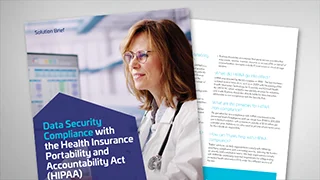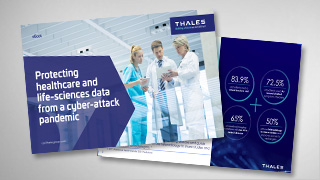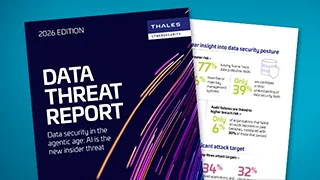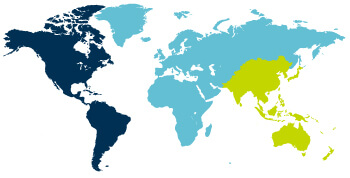The Health Insurance Portability and Accountability Act
The Health Insurance Portability and Accountability Act (HIPAA) is a US federal law that created national standards to protect sensitive patient health information from being disclosed without the patient’s consent or knowledge. The US Department of Health and Human Services (HHS) issued the HIPAA Privacy Rule to implement the requirements of HIPAA. The HIPAA Security Rule protects a subset of information covered by the Privacy Rule.
HIPAA Rules and Regulations lay out three types of security safeguards required for compliance:
- Administrative Safeguards primarily concern the requirement to conduct ongoing risk assessments to identify potential vulnerabilities and risks to the integrity of PHI.
- Physical Safeguards concentrate on the measures that should be implemented to prevent unauthorized access to PHI and to protect data from fire and other environmental hazards
- Technical Safeguards relate to the controls that must be put in place to ensure data security when PHI is being communicated on an electronic network

Regulation | Active Now
Enacted as a part of the American Recovery and Reinvestment Act (ARRA) of 2009, the HITECH Act expands the HIPAA encryption compliance requirement set, requiring the disclosure of data breaches of “unprotected” (unencrypted) personal health records, including those by business associates, vendors and related entities.
The HIPAA Rules apply to covered entities and business associates:
- Covered Entities encompass all health care providers creating, receiving, maintaining, transmitting, or accessing protected personal health information (PHI), including health plans, health insurance organizations, hospitals, clinics, pharmacies, physicians, and dentists, among others.
- Business Associates encompass third-party service providers that may create, receive, maintain, transmit, or access ePHI on behalf of covered entities. Examples include IT contractors or cloud storage vendors.
HIPAA was enacted by the US congress in 1996. The law has been updated several times since, such as in 2009 with the passing of the Health Information Technology for Economic and Clinical Health Act (HITECH), which added a new penalty structure for violations and made Business Associates directly liable for data breaches attributable to non-compliance with the Security Rule.
The penalties for non-compliance with HIPAA vary based on the perceived level of negligence and can range from $100 to $50,000 per individual violation, with a maximum penalty of $1.9 million per calendar year. Violations can also result in jail time of one to ten years for the individuals responsible.
How Thales Helps with HIPAA Compliance
Thales’ solutions can help organizations comply with HIPAA by simplifying compliance and automating security, reducing the burden on security and compliance teams. We help organizations comply with HIPAA by addressing essential requirements for safeguarding protected health information (PHI) under four different sections of the law:
We provide comprehensive cyber security solutions in three key areas of cybersecurity: Application Security, Data Security, and Identity & Access Management.
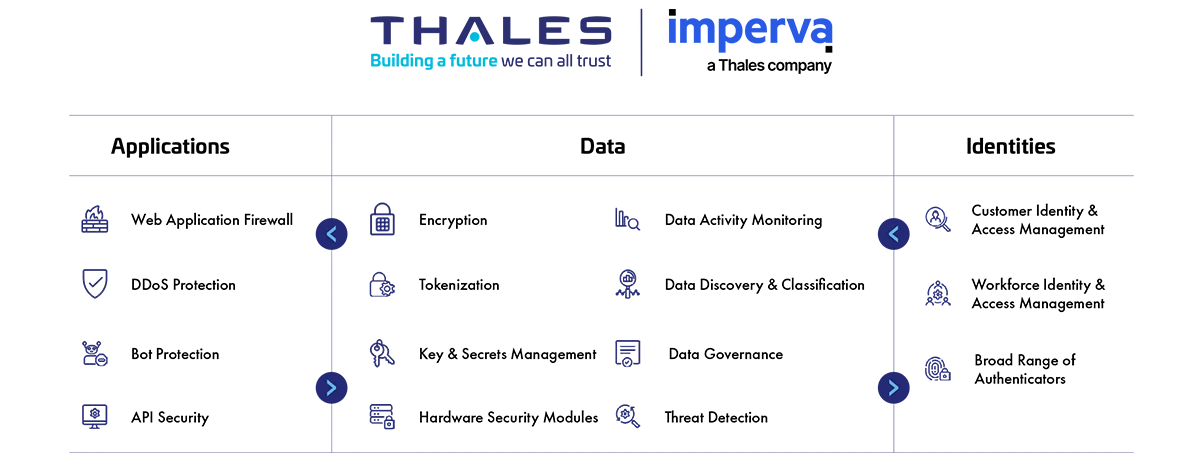
HIPAA Compliance Solutions
Application Security
Protect applications and APIs at scale in the cloud, on-premises, or in a hybrid model. Our market leading product suite includes Web Application Firewall (WAF), protection against Distributed Denial of Service (DDoS) and malicious BOT attacks, security for APIs, a secure Content Delivery Network (CDN), and Runtime Application Self-Protection (RASP).
Data Security
Discover and classify sensitive data across hybrid IT and automatically protect it anywhere, whether at rest, in motion, or in use, using encryption tokenization and key management. Thales solutions also identify, evaluate, and prioritize potential risks for accurate risk assessment as well as identify anomalous behavior, and monitor activity to verify compliance, allowing organizations to prioritize where to spend their efforts.
Identity & Access Management
Provide seamless, secure and trusted access to applications and digital services for customers, employees and partners. Our solutions limit the access of internal and external users based on their roles and context with granular access policies and Multi-Factor Authentication that help ensure that the right user is granted access to the right resource at the right time.
HIPAA 164.306 Security standards: General rules
How Thales helps:
- Identify, classify, protect, and monitor sensitive data across hybrid IT, ensuring that data is always secure and in compliance.
HIPAA § 164.308 Administrative Safeguards
How Thales helps:
- Identify structured and unstructured sensitive data at risk across Hybrid IT.
- Determine risk scores for data assets to assess potential risks.
- Identify current state of compliance, documenting gaps.
- Discover and classify potential risk for all public, private, and shadow APIs and conduct API risk assessment.
How Thales helps:
- Monitor I/O and block suspicious activity before ransomware can take hold.
- Prevents malicious software and users from accessing sensitive data.
- Use signature, behavioral and reputational analysis to block all malware injection attacks.
- Detect and prevent cyber threats with web application firewall.
- Safeguard critical network assets from DDoS attacks and Bad Bots.
Solutions:
Application Security
Data Security
How Thales helps:
- Reduce third party risk by maintaining on-premises control over encryption keys protecting data hosted by in the cloud.
- Enforce separation of roles between cloud provider admins and your organization, restrict access to sensitive data.
- Monitor and alert anomalies to detect and prevent unwanted activities from disrupting supply chain activities.
- Enable relationship management with suppliers, partners or any third-party user; with clear delegation of access rights.
- Minimize privileges by using relationship-based fine-grained authorization.
- Enable MFA for third-party users to thwart phishing attacks.
Solutions:
Data Security
Identity & Access Management
HIPAA § 164.312 Technical Safeguards
How Thales helps:
- Limit access to systems and data based on roles and context with policies.
- Apply contextual security measures based on risk scoring.
- Leverage smart cards for implementing physical access to sensitive facilities.
- Provide customers secure access to their information in company’s systems.
- Limit access to systems and data based on roles and context with policies.
How Thales helps:
- Data activity monitoring for structured and unstructured data on Hybrid IT.
- Produce audit trail and reports of all access events to all systems, stream logs to SIEM.
How Thales helps:
- Enable multi-factor authentication (MFA) with the broadest range of hardware and software methods.
- Build and deploy adaptive authentication policies based on the sensitivity of the data/application.
- Protect against phishing and man-in-the-middle attacks.
Solutions:
Identity & Access Management
How Thales helps:
- Encrypt data at rest on-premises, across clouds, and in big data or container environments.
- Protect cryptographic keys in a FIPS 140-2 Level 3 environment.
- Pseudonymize sensitive information in databases.
- Protect data in use by leveraging confidential computing.
- Gain full sensitive data activity visibility, track who has access, audit what they are doing and document.
- Security products designed for post-quantum upgrade to maintain crypto-agility.
How Thales helps:
- Protect data-in-motion with high speed encryption.
HIPAA § 164.514 Other requirements relating to uses and disclosures of protected health information
How Thales helps:
- Pseudonymize and mask sensitive information for production or tests while maintaining ability to analyse aggregate data without exposing sensitive PHI.
